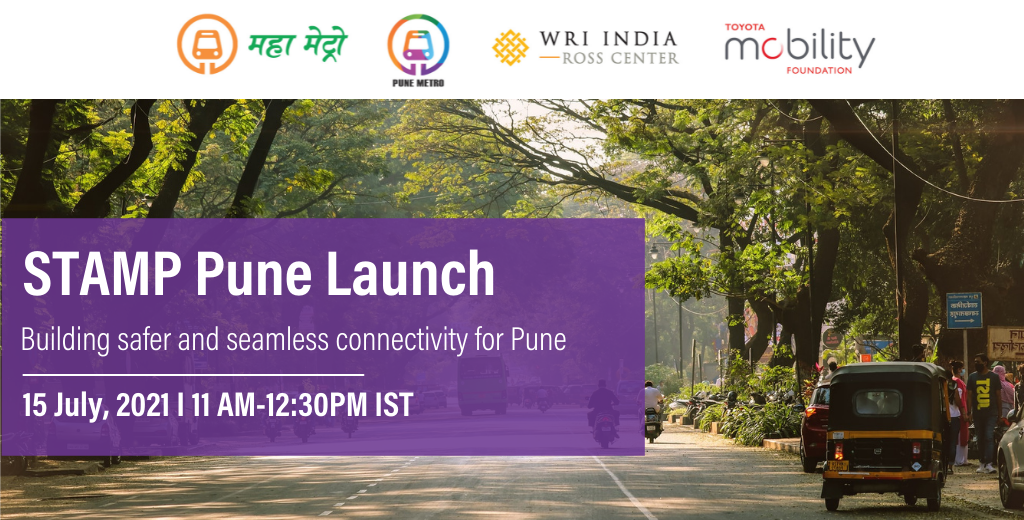11:00 AM to 12:30 PM

COVID-19 had a resounding effect on our cities, especially the way we travel. While citizens were isolated during lockdowns, public transport played a crucial role in moving essential workers and medical staff to places where they were needed the most. While navigating the new normal, integrated transportation, which brings different travel modes and last-mile options together, will play a key role in the country's growth story.
The Station Access and Mobility Program (STAMP), an initiative led by WRI India and Toyota Mobility Foundation, has worked for over 4 years to address the biggest challenges of public transport in India by supporting the creation of more safe, sustainable, and integrated transport systems.
Watch the full launch event here:
This year, STAMP will be tackling one of public transport’s biggest challenges yet-- helping commuters travel safely and seamlessly and enabling more robust transit ecosystems beyond the pandemic.
Pune is the second-largest city in Maharashtra and one of the fastest-growing cities in India. Despite efforts to bolster the city’s public transport system, only about 12% of the population uses public transport to travel. Pune Metro, which launches in August 2021, aims to strengthen connectivity across the city and in its twin city, Pimpri Chinchwad, with an anticipated six lakh commuters daily.
To ensure affordable, safe and seamless travel for commuters, STAMP will be working with Maharashtra Metro Rail Corporation Limited, last-mile mobility operators, technology providers and transport planners to understand how people move across cities and provide the best and safest options to connect commuters to homes, offices, and other activity centers from metro stations.
Join us on July 15th at 11 AM for the launch of STAMP Pune, along with a session on “Navigating Mobility 2.0: Building back better in Pune by enabling an integrated transit system.” Experts, government officials and business leaders from the city will share their insights on building resilient and inclusive transit infrastructure in Pune.
SPEAKERS
- Dr Brijesh Dixit, Managing Director, Maharashtra Metro Rail Corporation Limited (TBC)
- Dr Chetana Kerure, Joint MD, Pune Mahanagar Parivahan Mahamandal Limited (PMPML)
- Saharsh Bajpai, ADRM (Administration), Pune Division, Central Railway
- Atul Gadgil, Director (Works), Maharashtra Metro Rail Corporation Limited
- T Manoj Kumar, DGM, Multimodal Integration & Transport Planning, Maharashtra Metro Rail Corporation Limited
- Ravi Pandit, Chairman, KPIT Technologies and Board Member, WRI India (TBC)
- Pras Ganesh, Executive Vice President, Toyota Daihatsu Engineering & Manufacturing, and Director, Toyota Mobility Foundation (TMF)
- Pranjali Deshpande, Domestic Expert, Sustainable Mobility, CITIIS Program
- Madhav Pai, Executive Director, WRI India Ross Center for Sustainable Cities
